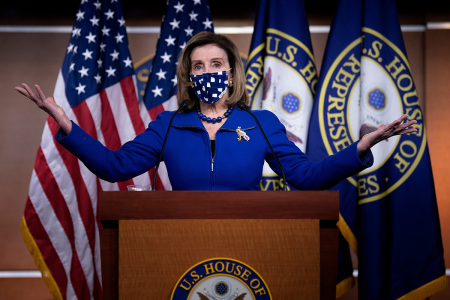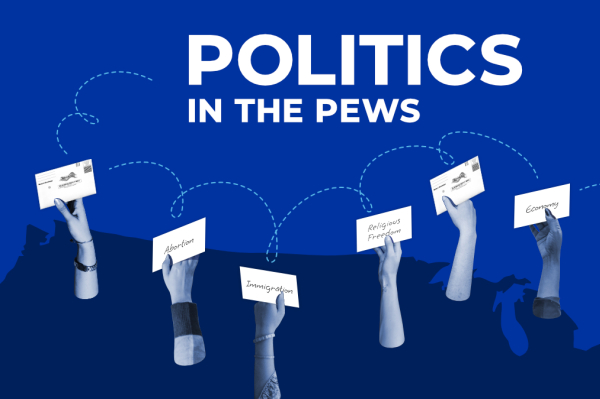Pelosi praises Vatican letter on communion for pro-abortion politicians

House Speaker Nancy Pelosi, D-Calif., a Roman Catholic, has rejected calls from Catholic bishops to refrain from communion due to her support for abortion, asserting that she can use her “own judgment” when assessing her worthiness for the Eucharist.
At her weekly press conference Thursday, Pelosi was asked by a reporter to react to the fact that the U.S. Conference of Catholic Bishops “doesn’t want you to receive communion.”
“No, they don’t,” she replied. “I think I can use my own judgment on that.”
She remarked that she was “pleased with what the Vatican put out on that subject,” asking the reporter if he read it.
When the reporter summarized the document as leaving the matter of whether to give communion to Catholic politicians who support abortion “up to the individual priests,” Pelosi characterized the message differently.
“No, it basically said ‘don’t be divisive on the subject,’” she asserted.
The exchange comes after Luis Ladaria, prefect of the Congregation for the Doctrine of the Faith of the Catholic Church, wrote a letter this month addressing the U.S. Conference of Catholic Bishops. The conference had announced that it was considering putting out national guidance advising priests to withhold communion from Catholic politicians who engage in pro-abortion advocacy.
Ladaria warned that establishing a national policy on the matter could “become a source of discord rather than unity within the episcopate and the larger church in the United States.”
Ladaria argued that “local Ordinaries” should engage in dialogue with politicians “within their jurisdiction who adopt a pro-choice position regarding abortion legislation, euthanasia, or other moral evils, as a means of understanding the nature of their positions and their comprehension of Catholic teaching.”
Additionally, Ladaria stressed that any national policy “would need to express a true consensus of the bishops on the matter, while observing the prerequisite that any provision of the conference would respect the rights of individual ordinaries in their dioceses and the prerogatives of the Holy See.”
He also encouraged the bishops to avoid giving the impression that “abortion and euthanasia alone constitute the only grave matters of Catholic moral and social teaching that demand the fullest accountability on the part of Catholics.”
According to Archbishop Joseph Naumann, the chair of the USCCB’s Committee on Pro-Life Activities, having a Catholic president who engages in abortion advocacy presents a “unique problem” for the Catholic Church that the draft document hopes to address.
Earlier this month, Archbishop Salvatore Cordileone, who oversees the Archdiocese of Pelosi’s hometown of San Francisco, released a letter expressing his view that pro-abortion Catholic politicians should not receive communion.
While he did not mention the House speaker by name, Cordileone directed a message to all Catholic politicians who engage in abortion advocacy.
“If you find that you are unwilling or unable to abandon your advocacy for abortion, you should not come forward to receive Holy Communion,” he stated.
“To publicly affirm the Catholic faith while at the same time publicly rejecting one of its most fundamental teachings is simply dishonest,” he added. “And please stop pretending that advocating for or practicing a grave moral evil — one that snuffs out an innocent human life, one that denies a fundamental human right — is somehow compatible with the Catholic faith. It is not.”
As the Catholic Church’s Code of Canon Law teaches, those “obstinately persevering in manifest grave sin are not to be admitted to holy communion.”
The debate about whether or not pro-abortion politicians should receive communion has caused division among Church officials.
In 2019, a priest in South Carolina refused to give Biden communion as he campaigned in the state, citing his abortion advocacy.
But Cardinal Wilton Gregory, who oversees the Catholic Archdiocese of Washington, said that he would allow Biden to receive communion despite his position on abortion.
A recent poll from the Pew Research Center found that two-thirds of American Catholics agree with Gregory’s position, while 29% think that Biden’s position on abortion should disqualify him from receiving communion.





















